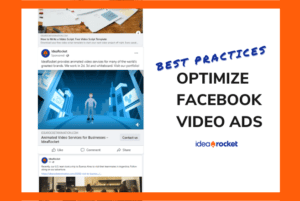COVID-19 has changed pretty much everything, and marketing is no exception. Teams are working from home offices instead of sitting around a conference table to brainstorm. They’ve tweaked processes to minimize physical interactions. They’ve adjusted messaging to better match the new reality. Amidst all this, the overall tone of marketing has changed as well.
Marketing in general has become more serious and less playful, more warm and less salesy, more hopeful and more helpful. Commercials for everything from car insurance to toilet paper fit this new marketing tone. So do social media posts, blogs, and other newly made content.
Even though everybody is attempting it, the nuances are challenging to get right, especially since the target seems to be constantly in motion. A video that felt comforting and sincere at the beginning of the crisis, now feels overwrought and self-centered. An ad that once stirred hope, now feels like a cruel reminder of how things used to be.
To help navigate this evolving new reality, we asked marketers across a range of industries about how they’ve changed the tone of their marketing since the pandemic hit. The uniting factor seems to be a sense of responsibility. Marketers know they have access to the eyes and ears of consumers, and they feel a responsibility to bring comfort rather than inciting more fear. Here’s a look at how they’re doing it, and how you can follow their example:
Acknowledge that things are different
Most marketers started by reviewing their ongoing marketing and adjusting where needed. Content created before the pandemic might seem out of touch with the current reality. Maria Akhter, Content Strategist at Circa Interactive, which serves the college and university market said, “Universities should audit existing ad copy, landing page copy, and content across channels to ensure messages that could be perceived as insensitive to the current situation are removed or updated.” (ex. “Come visit our campus!”)
It’s not just universities that can benefit from this advice. Organizations in all industries can take a look at their marketing to spot messages that might seem insensitive. That doesn’t mean scrapping every blog post or video created before the pandemic. However, you should check automatic email sequences, landing pages, and other long-standing collateral for tone.
Aim for hope and comfort

Businesses that might normally describe their tone with words like funny, silly, or any other lighthearted adjective are moving toward more hopeful and comforting messages.
Samantha Moss, Editor and Content Ambassador at relationship blog Romantific, said, “We adjusted our content from having a lively tone to something that hopes for a better future in consideration of the current situation. It is also to avoid spreading negativities to our audience because we know that most of them are having a hard time dealing with the crisis, causing them to be anxious or filled with fear.”
Health and safety are even greater concerns than usual for most consumers. The most effective marketing messages acknowledge these concerns without feeding anxiety as Liam Hunt, writer and digital marketing specialist, for web solutions company IronMonk explains:
“Our marketing efforts have shifted toward messaging that assures the health, safety, and wellbeing of our audience. Our marketing goals haven’t shifted dramatically, as people still eat, still work, and still want to be entertained as they used to. However, the content of the messaging has reoriented in a way that cultivates peace of mind and fosters a sense of ease.”
Educate rather than sell
With so much uncertainty in the world, many people are looking for help and support wherever they can get it. Brands that step up and provide education instead of overt marketing messages might fare best as Yaniv Masjedi, CMO at VOIP company Nextiva explains:
“We have toned down our more aggressive advertising, and instead concentrated on being as helpful as possible. Long-term everything will go back to normal, the choice is whether you want to come across as insensitive now, or to use this opportunity to build a rapport with your audience. You build a rapport with your audience by helping them when they need it.”
Similarly, Erik Rivera, CEO of ThriveTalk said marketing for the mental health services telehealth platform has taken a more educational and informative tone. It’s a natural response to a crisis, but he believes it will support marketing success in the long run as well.
“Because content marketing in general is often about building a tribe of followers for your brand, educational content during a time of purchasing hesitancy can be a great long-term strategy,” Rivera said. “This can build brand loyalty by teaching your audience information while they’re not quite ready to buy. When they are ready to buy again, they’ll already be in your corner and want to buy from you.”
Businesses like Nextivia and Thrive Talk provide tools that could help in the current crisis. They are adjusting their messing to be situation specific, focusing on ways to solve current problems. If your business doesn’t provide products that directly address work from home, online education, healthcare or other pandemic-related challenges, you can still find ways to help and support your customers.
“When you focus more on serving your community, rather than directly pitching them, you can often discover you make more sales,” Masjedi said.
Looking to the future
We can’t be certain when the crisis will end or how much the tone of marketing will change between now and then. What we can do is keep listening to customers, keep crafting empathetic marketing messages, and stay aware of changing situations. Paige Arnof-Fenn, Founder and CEO of marketing agency Mavens and Moguls summarizes it this way:
“I feel we have a tremendous responsibility because never before has communications had the power to help society in the way that it does right now…we can see which leaders and brands are doing the best job every day with messages that touch not only the mind, but also the heart and soul. There has never been a more important time to provide accurate, empathetic communication with transparency, truthfulness and timeliness.”
If you have questions about how to create marketing videos in the current landscape, reach out to IdeaRocket. We’re here to support your video marketing strategy through this challenging time.



